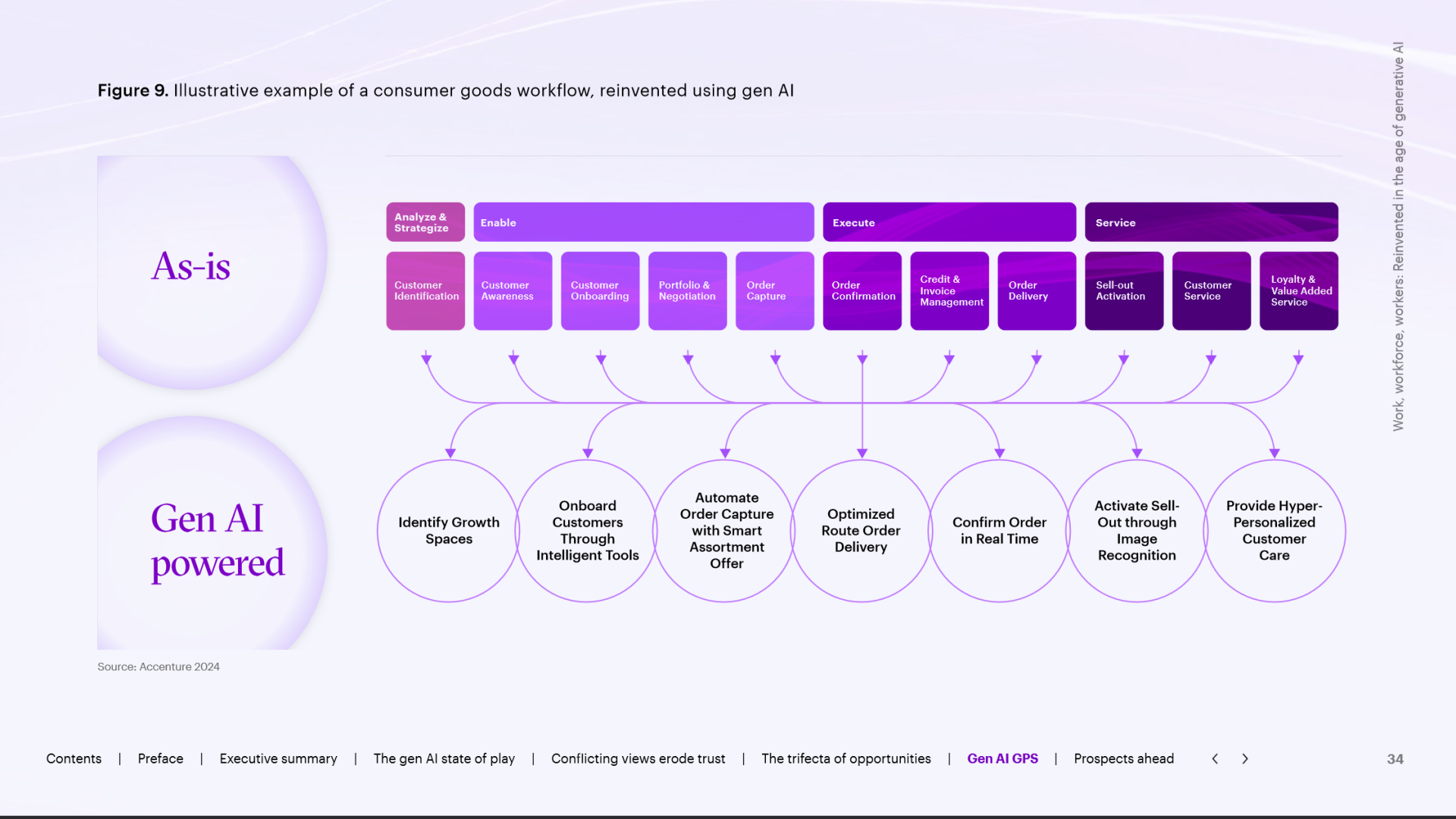One global research paper offers some estimates over a 15-year period, assuming generative AI is adopted aggressively but responsibly and wisely
Based on research that combined economic modeling (for 22 countries including regional markets in Australia, China, India and Japan), including a CXO survey (total of 7,375 respondents across Sep–Nov 2023) in these countries and Singapore, several predictions about the impact of generative AI (GenAI) in parts of the Asia Pacific region (APAC) have been announced by a professional services firm.
First, it has been estimated that 33% of working hours will either to be automated or augmented by Gen that could lead to a productivity boost that could raise GDP by 0.7% per year in the APAC countries studied over the next 15 years (estimated to be an additional US$4tn in economic value).
Second, 96% of APAC business leaders in the survey component acknowledged the impact of Gen AI, and 91% of APAC workers polled had indicated that they were keen to acquire new skills to work with GenAI. Further, 4% of business leaders in the CXO survey indicated having rolled out GenAI training at scale. Some 89% of APAC businesses polled were planning to increase their GenAI technology spending this year, with 35% prioritizing investments in their workforce’s development.
Third, the most impacted industries in the research included capital markets (where GenAI is expected to transform 71% of working hours) and the software and platforms sectors (66% of working hours will be automated or augmented); banking (64%), insurance (62%) and retail (49%) sectors were also high in the list.
According to Leo Framil, CEO Growth Markets, Accenture, the firm that released its GenAI research predictions: “To fully harness GenAI’s full potential, leaders need to see it as more than just a tool for redesigning processes and driving cost efficiencies. It needs to be viewed as a value creation opportunity for businesses, people and society. As an engine of global economic growth, home to more than 50% of the world’s population, and a major contributor within the global technology innovation ecosystem, APAC has an opportunity to show the way for people-centric, responsible AI adoption to drive productivity and sustainable growth.”

